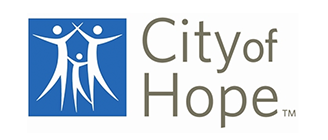Contents: Background | Introduction | Challenges | Journey | Why LabKey | Results | Conclusion
Background:
City of Hope is a comprehensive cancer care center gathering a wide range of clinical, genomic, and specimen data about patients undergoing treatment using the Total Cancer Care protocol. Working within the Oncology Research Information Exchange Network (ORIEN) consortium, the goal of this project is to bring together clinical and genomic data, making it available across the entire City of Hope enterprise where it can be used to improve precision-based therapies for future patients.
Precision medicine involves aligning many complex elements, including deidentified patient data, whole genome or exome sequences, specific tumor sequences, blood draws, biopsies, and more. Because of this, researchers and doctors make a lot of comparisons in order to improve health outcomes and expand knowledge.
Making informed decisions involves comparing pathological to non-pathological tissue in a patient, samples between patients with the same health conditions, and patients with pathologies to healthy patients. With this data, insights can be drawn, treatments evaluated, and patient care made more certain and successful.
Introduction:
LabKey’s Server SDMS acts as an information hub, integrating a multitude of data types and presenting it for further research and analysis. City of Hope saw potential for LabKey to unify their data for holistic analysis of all information available.
Challenges:
Gathering and integrating data from multiple locations can be difficult, particularly when protected patient data is involved and security is critical.
Security Roles and Data Access: The institution/enterprise needed to provide authorized users with secure access to diverse data from a wide variety of sources without resorting to piles of spreadsheets and manual alignment or home-built solutions.
Reporting: Researchers also needed to be able to generate visualizations and reports directly within the user interface to unlock trends and insights without leaving the combined data landscape.
The Journey:
Data Landscape Evaluation: City of Hope embarked on the journey by assessing the dispersed clinical and genomic data, recognizing the need for a unified solution. EPIC/Clarity held current clinical data, while historical records were scattered in paper form. The challenge was efficiently gathering and extracting this diverse data.
LabKey Identification: LabKey emerged as the strategic solution to unify City of Hope’s data landscape. Its experience in integrating diverse data types, coupled with efficient tools for annotation and quality assurance, made it the chosen platform for seamless data integration.
Streamlined Integration and Analysis: LabKey Server SDMS streamlined the migration process by automating data import and scripted transformation, minimizing human error. The platform seamlessly incorporated data from specimens, genetic testing, and other sources, enabling holistic analysis within a unified interface.
Compatibility and Compliance Assurance: The decision to integrate LabKey Server was fortified by its compatibility with existing data warehouse systems. The platform’s graphical access, for querying and reporting, API capabilities, and compliance assurance through an audit system, aligned with City of Hope’s needs.
Future-Ready Flexibility: Recognizing LabKey Server as a scalable solution offering flexibility, City of Hope ensured it was well-prepared for future growth. The platform’s adaptability to evolving research needs within the institution and the broader ORIEN networks solidified its role in advancing precision medicine.
Why LabKey:
Data Warehousing: City of Hope determined that LabKey’s Server SDMS would integrate well with their existing data warehouse systems, provide users with graphical access to querying and reporting, as well as API access for developers and users performing more advanced analysis techniques.
Information Extraction: Server SDMS is well suited to address the challenge of extracting historical information from a wealth of existing patient treatment records that were not originally stored in ways that align with other data.
Flexibility and Expansion: More than just a software vendor, LabKey also supports City of Hope’s needs for team collaboration solutions, API development, and workflow integration, with an audit system that supports regulatory compliance. Looking ahead, LabKey solutions offer the expansion and flexibility required for scaling the City of Hope and ORIEN networks into broader use.
Results:
There are two main components to how City of Hope is using Server SDMS:
- Data aggregation from disparate sources and alignment with patient information
- Management of the workflow process itself, including automated import and scripted transformation of data
The City of Hope began bringing data into the system in February 2018, with these effects on their precision medicine research:
Customization: Researchers can customize as many individual views as they need and create personalized workflows that are not possible with other platforms.
Data Unification: Server SDMS handles logistics and data validation, using automatic processes to extract, transform, and load the data, saving City of Hope time and removing human error.
REDCap Integration: Research teams can incorporate existing REDCap electronic data collection automatically, and focus on the science of precision medicine to improve patient treatments.
Conclusion:
LabKey’s Server SDMS integrated all the necessary genomic, clinical, specimen, and workflow data, empowering users to easily join tables directly within the user interface without impacting colleagues who might have different needs.
Through publicizing early research results, the institutional ORIEN research project plans to expand usage within its City of Hope enterprise. Over time, this resource will grow and provide researchers with a wealth of information to use to understand the specific health story of the individual as a means to developing precision medicine.
